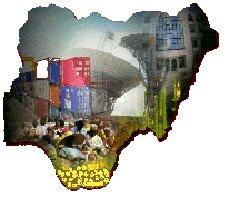


Harsh economic environment crashes corporate earnings

Negative economic fundamentals overshadowing Nigeria’s business environment may have begun to take its toll on corporate financial results as third quarter earnings plunged in three key sectors, namely, oil and gas, banking and conglomerates.
Poor results announced by industry leaders in these sectors also worsened the performance of Nigerian Stock Exchange All Share Index last weekend.
In the oil and gas sector, Oando Plc had led the pack in corporate downturn with a record monumental loss of N179.3 billion in its late result of 2014 full year and then followed it up with another N35.1 billion loss in its interim 2015 results.
Last week other big players followed same trend with Mobil Oil Nigeria Plc announcing a third quarter result that show revenue at N43.326 billion down 25.3 per cent from N60.718 billion recorded in the corresponding period of 2014 while its profit at N5.248 billion show a 33.5 per cent decline from N7.895 recorded in 2014.
Conoil Nigeria Plc and Total Nigeria Plc which are among the top players in the industry equally recorded declining fortune with Conoil recording a massive 42.28 per cent and 16.13 per cent drops in revenue and profit respectively while Total recorded 10 per cent and 5 per cent drops in revenue and profits respectively.
All the companies blamed negative economic environment and global oil price crash for their declining performance. They also cited foreign exchange related losses, post-currency devaluation as well as delayed payments of petroleum products subsidies to downstream operators as leading causes of the bad fortune adding that year end and beyond look bleak in the face of what they call “dull policy moment in the oil and gas sector.”
The banking industry presented a similar picture last week when almost all the results in the sector were announced showing that while tier-two banks show growths, big players in tier-1 league show marginal growth with a few significant declines in fortune.
Afrinvest Group, a Lagos-based investment house, in a review of the banking sector third quarter 2015 performance last weekend noted that “within the banking space, the constraining operating environment in 2015 was reflected in their levels of profitability in comparison to the corresponding period the year before.
“The high exposure of Nigerian banks to the public sector and the oil & gas sector (which we estimate at 5.4 per cent and 27.0 per cent in first half 2015 respectively) has led to a weakness in assets quality as the revenue profiles of their key customers (government and indigenous downstream and upstream companies) were impaired by the oil price crash.
“This has led to higher non-performing loans and impairment charges affecting profitability of banks. Our year-on-year analysis of banks’ bottom lines across tiers shows that third quarter 2015 profitability was generally affected by higher impairment charges, with Stanbic IBTC Bank Plc leading the pack at 521.3 per cent, FirstBank, 247 per cent; United Bank for Africa 129 per cent, recording the highest increases in impairment charges, a development which ultimately depressed their profitability.
The consumer goods and conglomerate segment also followed the decline trend with key players posting significant declines in both revenue and profit except Nestle Plc which was able to deliver marginal year-on-year increases in revenue and profit despite the challenging macroeconomic landscape.
Cadbury Nigeria Plc and UAC Nigeria Plc led the pack in both sectors with Cadbury recording a massive 98.27 per cent decline in profit while UAC suffered equally heavy drop of 58 per cent in profitability.
On sector average, analysts observed that though sales growth in the last nine months shows a marginal weakening at about 0.2 per cent across top five consumer goods companies, net finance costs surged 81.5 per cent.
Source: Vanguard
Share this post
Naijanetwork Forum Statistics
Threads: 14843,
Posts: 17902,
Members: 6711


